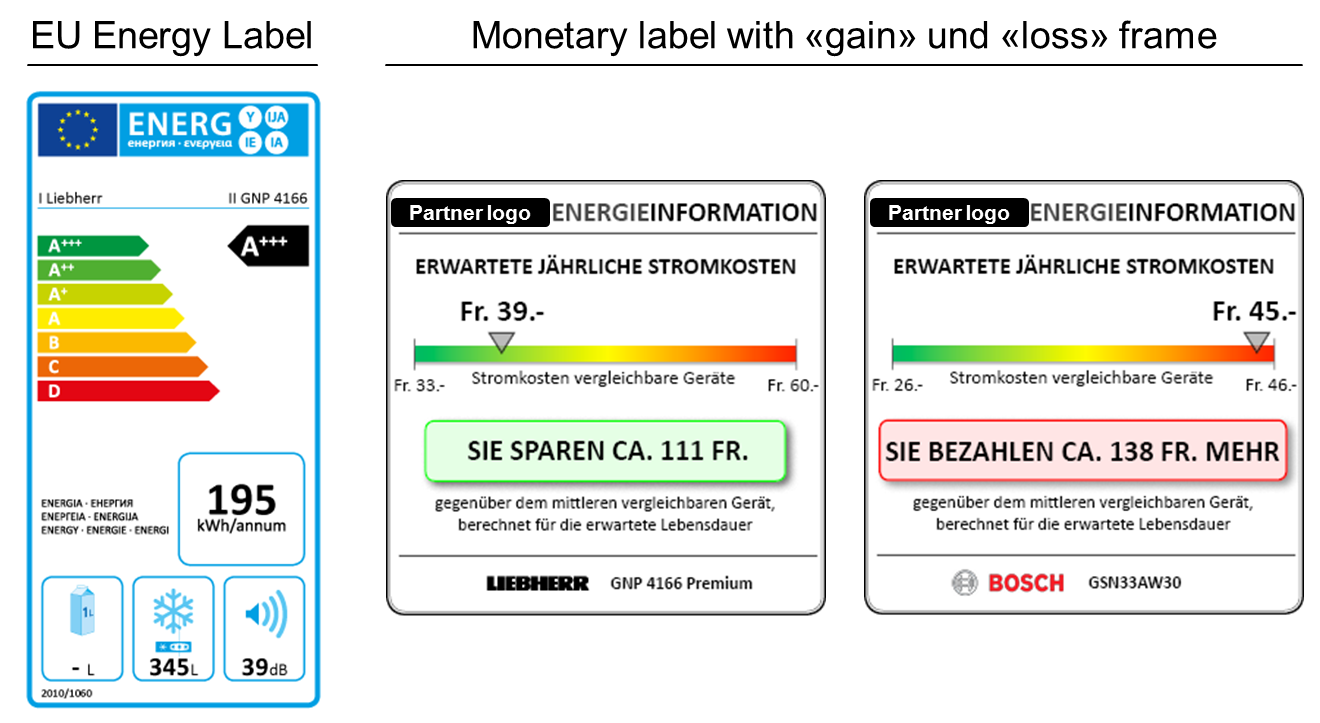The Impact of Energy Labels on Purchases of Household Appliances
Energy-efficient appliances often seem to be overlooked by households although they offer net monetary savings. Increasing the energy efficiency of purchased household appliances would provide a double dividend: Financial profits for households as well as higher social welfare due to the reduction of negative externalities from the consumption of energy.
The above mentioned energy efficiency gap is partly caused by limited attention or incomplete information concerning the energy consumption of electric appliances. Energy labels seem to be an adequate instrument to attract attention and inform households about the energy consumption of devices. The Chair of Economics addressed the role of energy labels for purchase decisions in a field experiment with an online retailer, examining the influence of two different labels on online purchases of household appliances and televisions.
The Chair of Economics found that the well-established EU Energy Label as well as a new monetary and lifetime-oriented energy label is similarly effective to increase the energy efficiency of purchased products. The use of monetary and lifetime-oriented information seems to be particularly promising for goods with high annual electricity costs. Overall, both labels reduced the mean annual electricity consumption. The researchers observed, however, a “volume-effect” for some devices, for instance for freezers: While consumers purchased a higher proportion of energy-efficient freezers when energy labels were presented, the mean volume of the purchased appliances also increased so that the total mean annual electricity consumption of purchased freezers remained unchanged. Nudging strategies may be interesting to reduce the importance of the volume effect.

external pageProject reportcall_made on behalf of the Swiss Federal Office of Energy (SFOE).
The ESC member involved in this project is Prof. Renate Schubert
The research and teaching activities of the Chair of Economics focus on explanations of individuals’ and groups’ behavior towards energy and the natural environment, on impacts of this behavior as well as on recommendations for welfare-increasing interventions.
